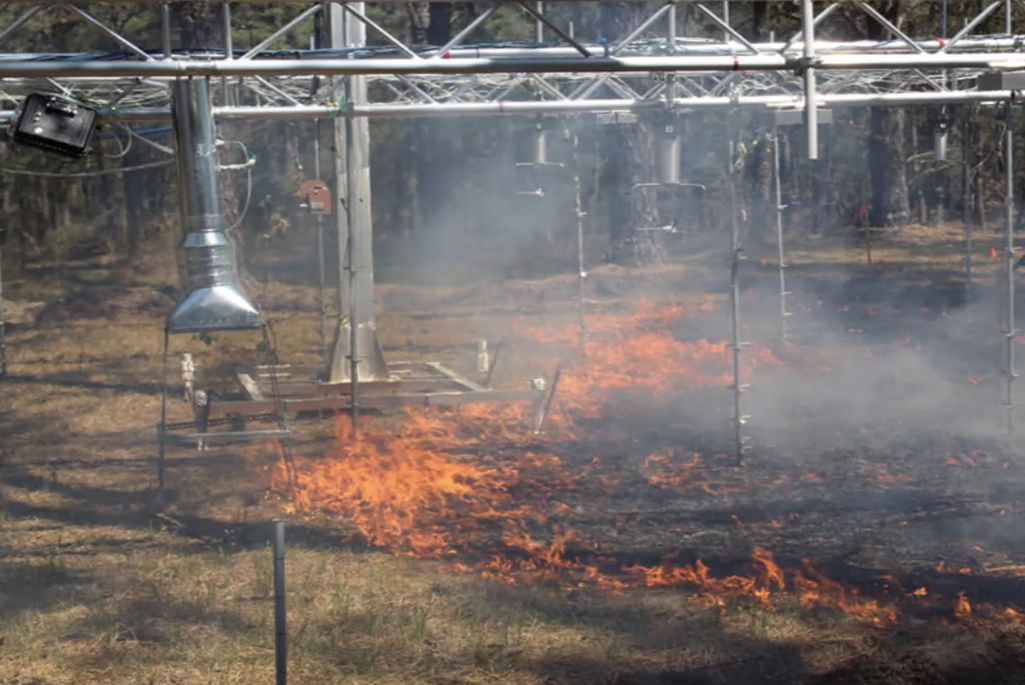They also contribute significantly to greenhouse gas emissions – thereby further fueling climate change.
Researchers need to store, manage, and harmonize relevant data to better understand and predict fire hazard and risk, as well as fire behavior.
Enabling Wildland Fire Science Initiative (WFSI) Data Integration Through a Managed Data Platform is a new Department of Defense (DoD) funded project that aims to support research related to wildland fires, which encompass both wildfires and prescribed fire. Led by researchers and engineers within the Computing Science Area’s Scientific Data Division (SDD) and Earth and Environmental Sciences Area (EESA), the platform will enable a collaborative data repository with advanced publication and search features, and will encourage uniform metadata and data standards, collaboration among scientists, and long-term data archiving. More generally it will support the concept of Findable, Accessible, Interoperable, and Reusable (FAIR) data.
Shreyas Cholia, Lead Principal Investigator (PI) of the project, said, “The new data platform is crucial for enabling a common and consistent approach to managing the data lifecycle across the Strategic Environmental Research and Development Program (SERDP) WFSI projects. Currently, these projects face barriers due to a lack of metadata/data standards and a common platform to share data. There is a strong need to share data across projects and enable greater collaboration,” says Cholia.
The platform is a timely and relevant contribution to the science surrounding wildland fires, a term that encompasses both wildfires and prescribed fire –an essential land management tool used to reduce the buildup of materials that fuel wildfires, such as dead leaves and fallen pine needles, and promotes forest resilience. Andrew Hudak, a USDA research forester who is collaborating on the project, says that fire scientists participating in WFSI are collecting data regarding fuel, fire behavior, and smoke measurements before, during, and after prescribed fires, in order to improve models used by managers to inform decision making on all wildland fires, including undesirable wildfires. With this data obtained across multiple scales, scientists can better understand the intensity and development of fires while they are burning, and help to assess wildland fire effects and impacts.
Berkeley Lab brings together an interdisciplinary team to tackle these challenges, including Robinson Negron-Juarez, Staff Scientist in EESA-Climate and Ecosystem Science Division, and Valerie Hendrix, Senior Software Engineer in the SDD.
“A research publication usually represents the end of data analysis. Data management extends the life of a dataset, which can now, with curation, be used far beyond its original intent. Data management incentivizes collaboration among scientists to explore beyond their areas of expertise,” said Negron-Juarez.
This newly funded project will build on DoE’s Earth and Environmental System Science Data for a Virtual Ecosystem (ESS-DIVE) project led by Berkeley Lab. The project falls within a new program domain for EESA, Earth Artificial Intelligence (AI) and Data (EAID), which is focused on research that makes use of machine learning, data sciences, informatics, and data management to advance state-of-the-art Earth science observations, modeling, and theory.
“The data management platform represents a wonderful opportunity to bring together approaches and expertise in both wildland fire science and data science to make real progress in understanding how wildland fires behave,” said Cholia. “Modelers will be able to look at different aspects of wildland fires, and to build knowledge collaboratively.”


